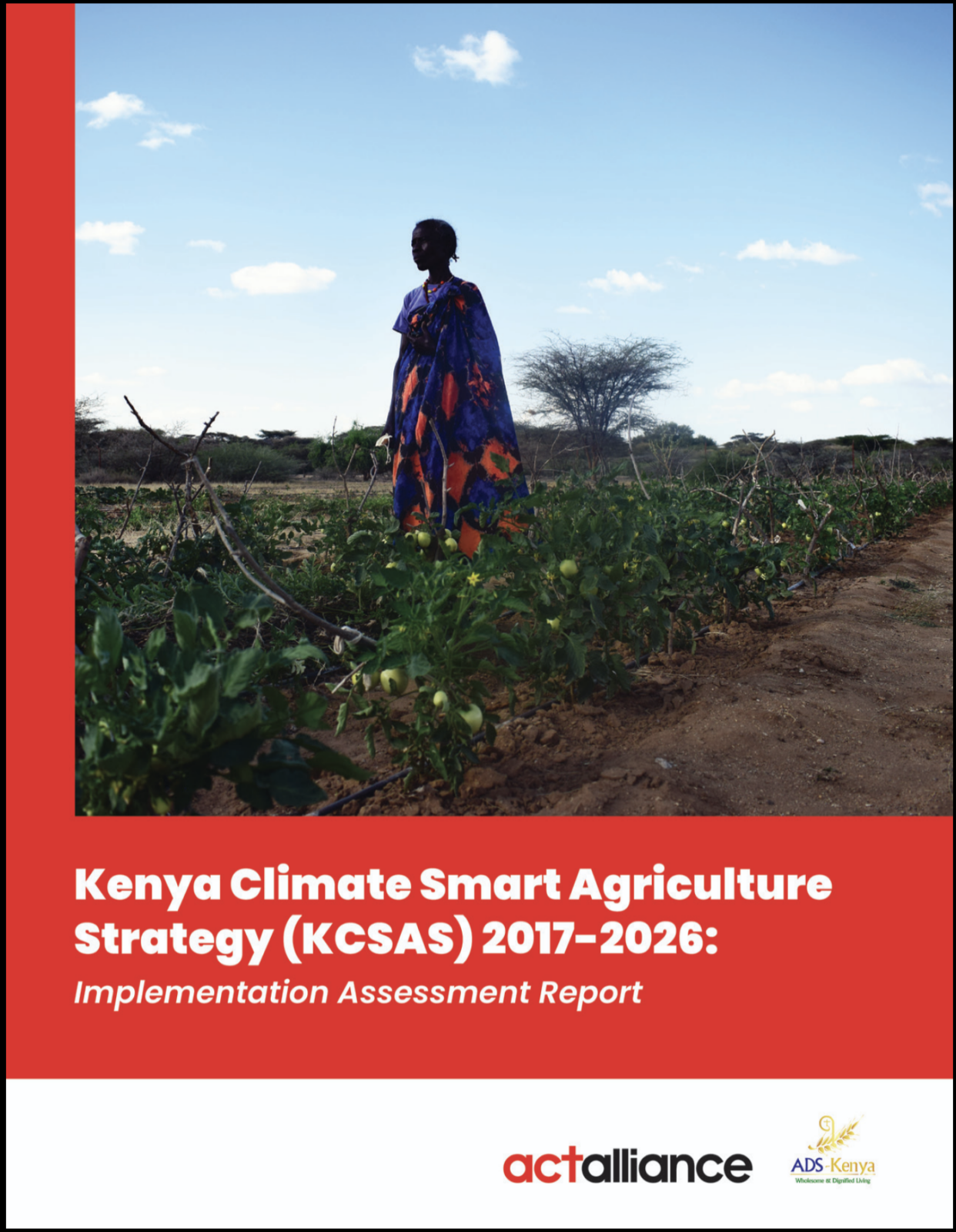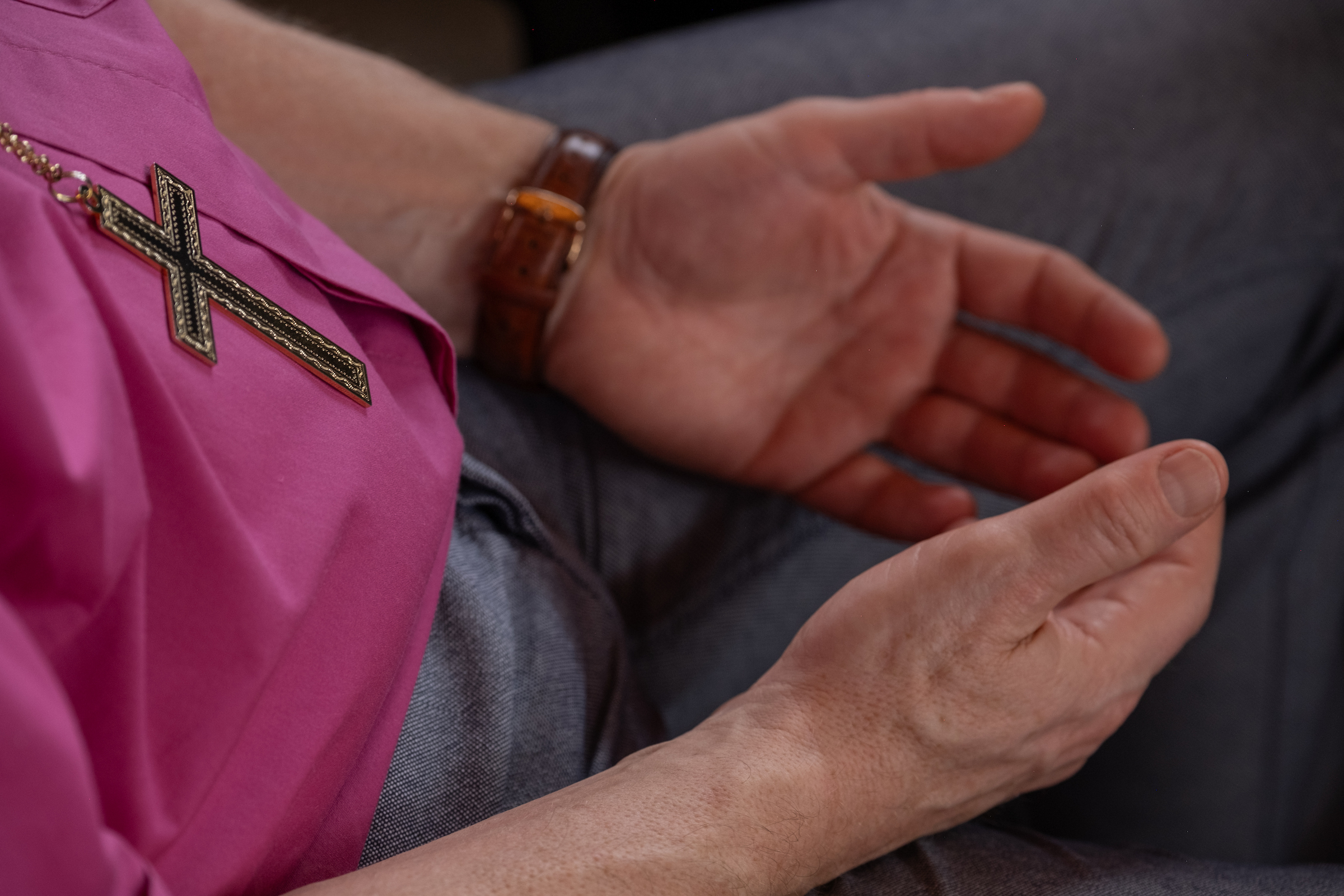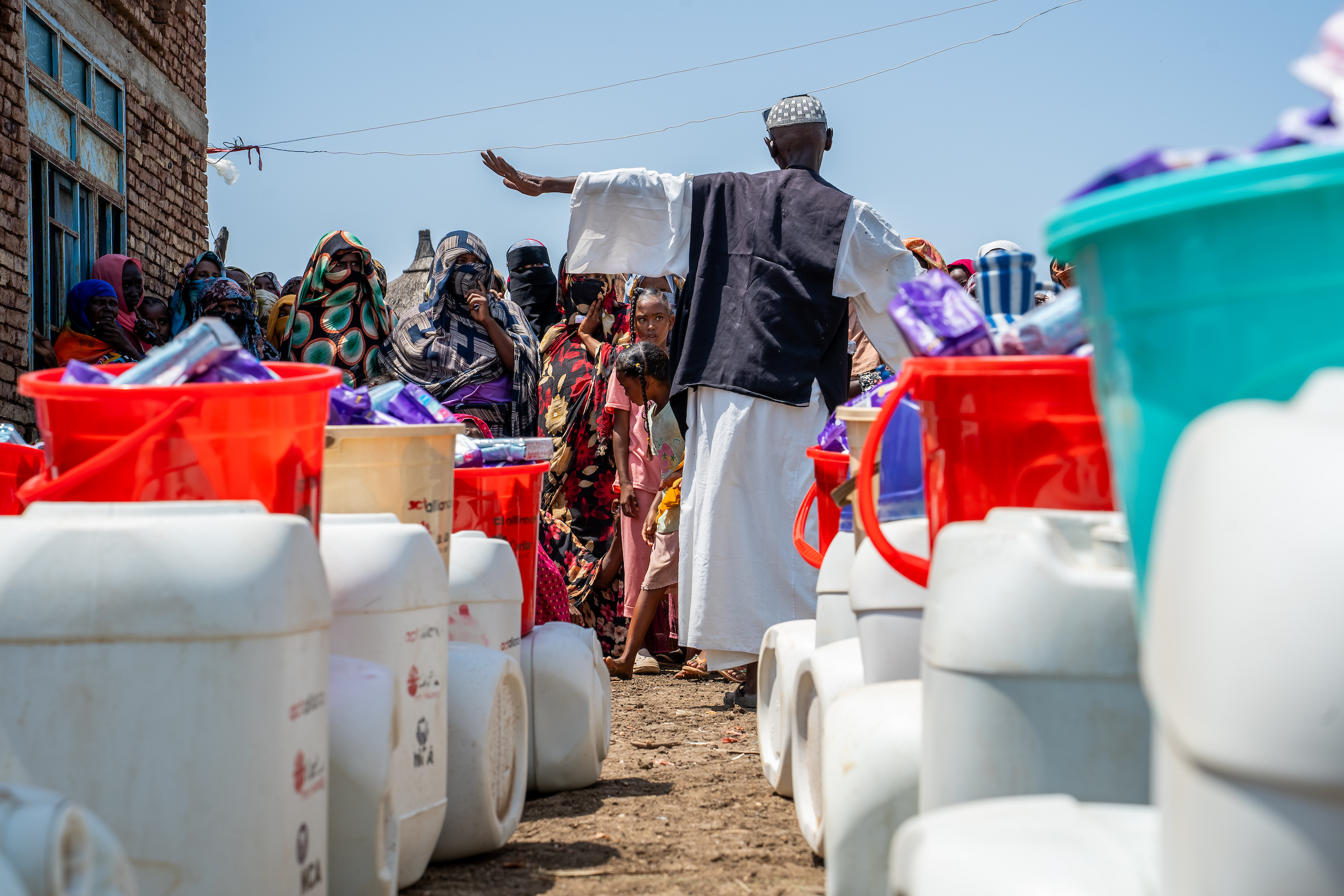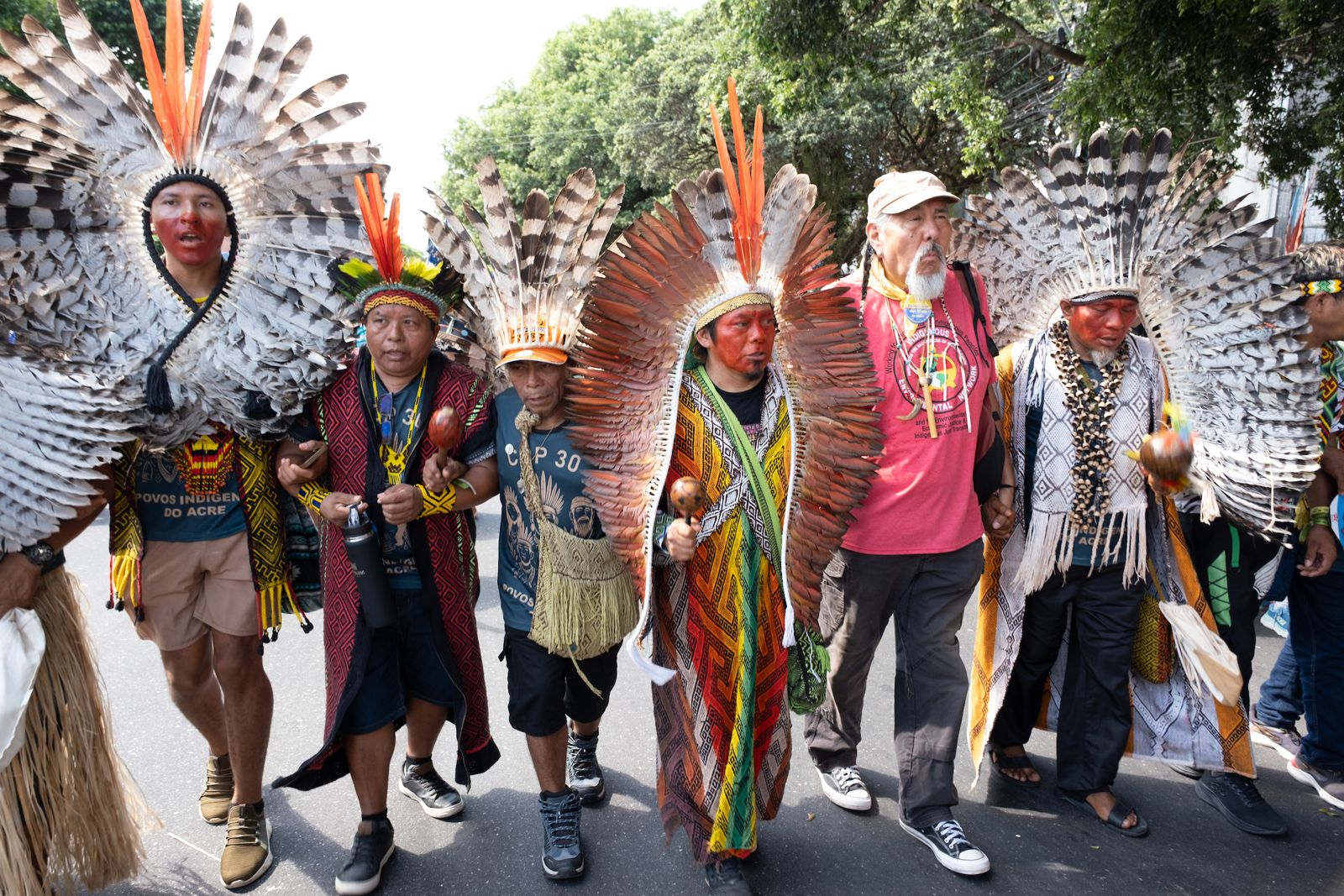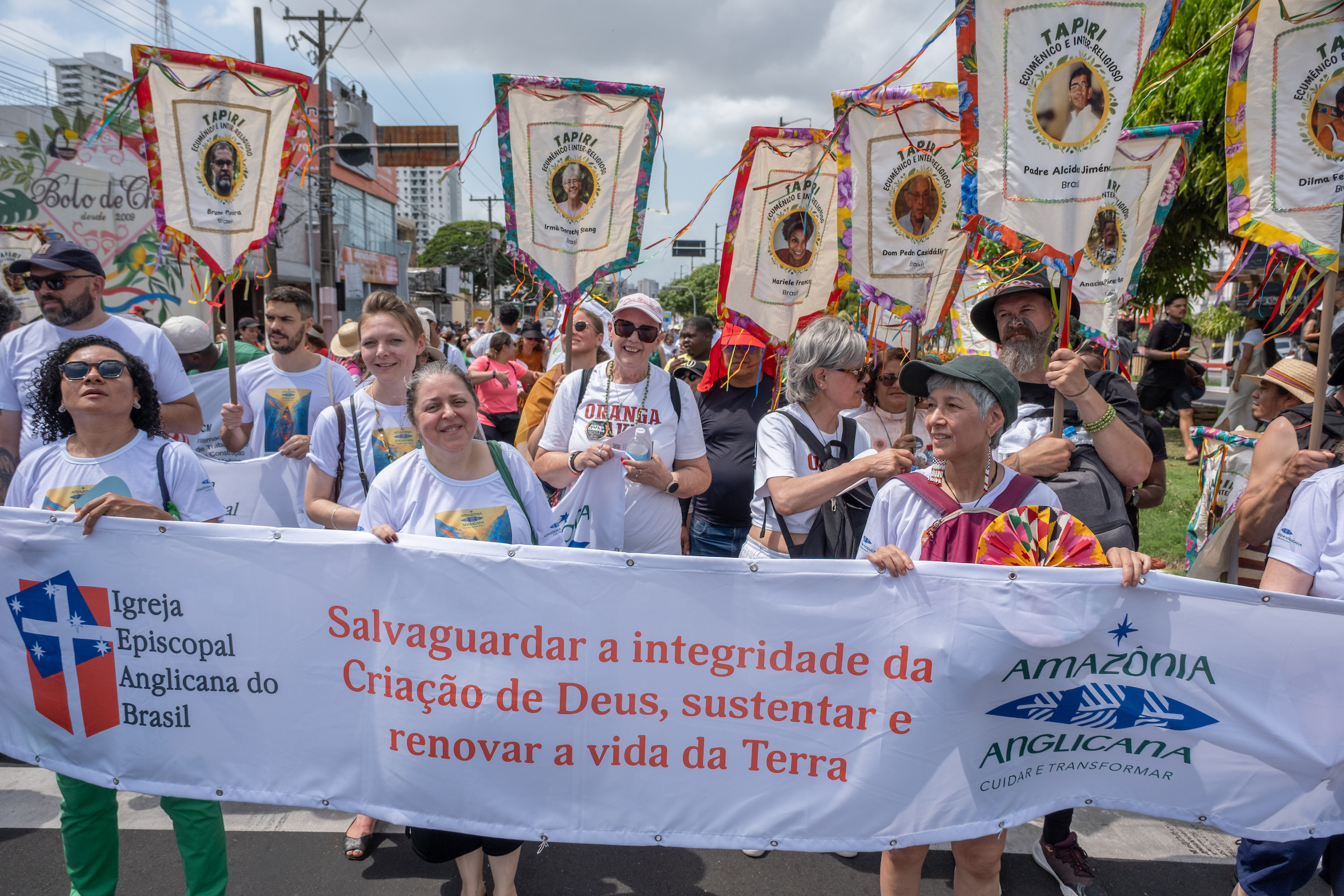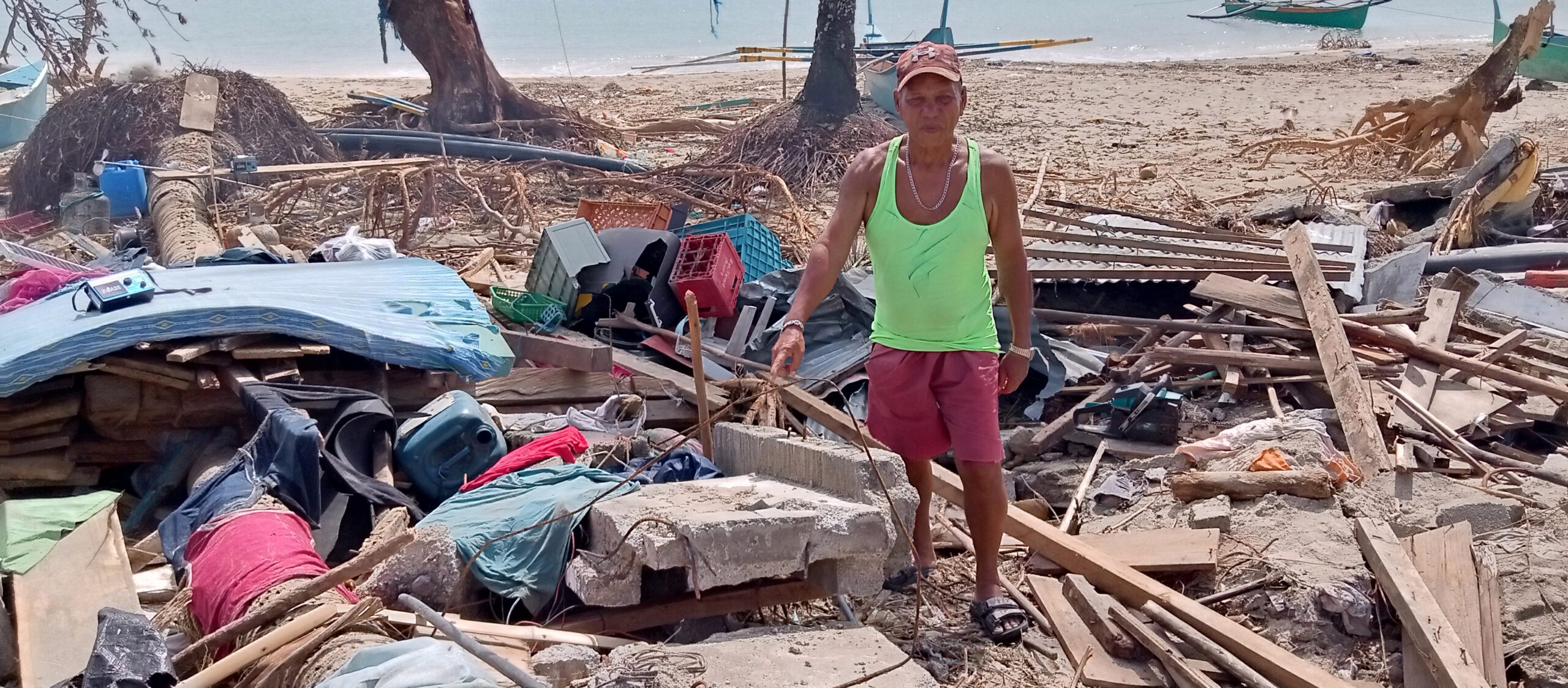Representatives of the ACT Alliance, World Council of Churches, Lutheran World Federation, and other ecumenical groups gathered at COP29 are expressing concern as the negotiations enter their second week.
“Parties at COP need to get serious about taking action on climate change,” said Julius Mbatia, ACT Alliance’s global climate justice programme manager. “We have very little time left to reach 1.5 and already the impacts felt around the world are almost insurmountable. If we don’t act now the challenges to economic growth, development, food security, and peace and security will get much worse.”
Faith actors in the group are following many of the negotiation streams:
Finance
COP29 is the Finance COP, but it looks at this point like the New Collective Quantified Goal will not achieve some of the key components that faith actors and civil society have been advocating for. Finance needs to come in good quality forms- grants, not loans, public rather than private finance, new and additional rather than repackaged promises or reallocated ODA, and paid on time. The NCQG should have the ambition to set us up for a hopeful future where countries have the support and resources needed to address climate change.
Developed countries have an obligation to support others in addressing climate change. Much more is needed. Developed countries seem focused on how little they can be responsible for rather than on meeting their obligations and redressing their debt to developing nations. Developing countries need ambitious, core, bilateral contributions, which are solely grant-based for adaptation and L&D.
“As we enter the 2nd week of negotiations, the key element missing to unlock progress is the willingness of developed countries to show the money they must provide to fulfill their obligation towards meeting the needs of developing countries,” said Mariana Paoli, global advocacy lead at Christian Aid. “Grants at scale are the only way to address the impacts of climate and enable communities to adapt. Any big number without the quality on public finance will be meaningless.”
Mattias Söderberg, co-chair of the ACT Alliance Climate Justice Reference Group, underscored the importance of climate finance, ““The climate finance bill is not just numbers – it represents the lives and futures of communities on the frontlines of climate change, who will be, and already are being, affected if finance isn’t flowing.”
We have very little time left to reach 1.5 and already the impacts felt around the world are almost insurmountable. If we don’t act now the challenges to economic growth, development, food security, and peace and security will get much worse.Julius Mbatia ACT Alliance global climate justice programme manager
Adaptation
We cannot allow this year’s focus on finance to hold back progress on adaptation. The Global Goal for Adaptation needs indicators that create entry points for reflecting climate impacts on human mobility as a cross cutting issue, and the National Adaptation Plans should not only involve and address needs of people impacted by climate related human mobility, they should ensure inclusion of all persons in climate vulnerable settings, including refugees and migrants.
“Urgent action is needed to significantly increase support for climate adaptation, including through a sufficient adaptation quota within the NCQG, and to ensure that funds are more effectively targeted to the most vulnerable countries and people,” said Nathaly Quito, a Lutheran World Federation Youth delegate from the Evangelical Lutheran Church in Colombia.
“Sometimes donor nations say that we have to be realistic in the demands for climate finance,” said Henrik Grape, senior advisor on climate justice for the World Council of Churches. “Meaning that trillions is out of touch. To be realistic is to understand how huge the costs will be due to inaction and broken promises. Be realistic now!”
Mitigation
Similar to the situation with adaptation, we cannot let the focus on finance prevent us from achieving progress on the mitigation front. 1.5 gets harder to achieve with every delay in taking ambitious action to mitigate the impacts of climate change and global temperature rise. There is a disconnect between financial, policy, and scientific stakeholders that is leading to inaction in the mitigation process; we need more interdisciplinary efforts. In addition, we need more focus on the subnational front.
““The lack of progress is very disappointing. This summit should send a clear message that nations are serious about emissions reductions,” said Söderberg.
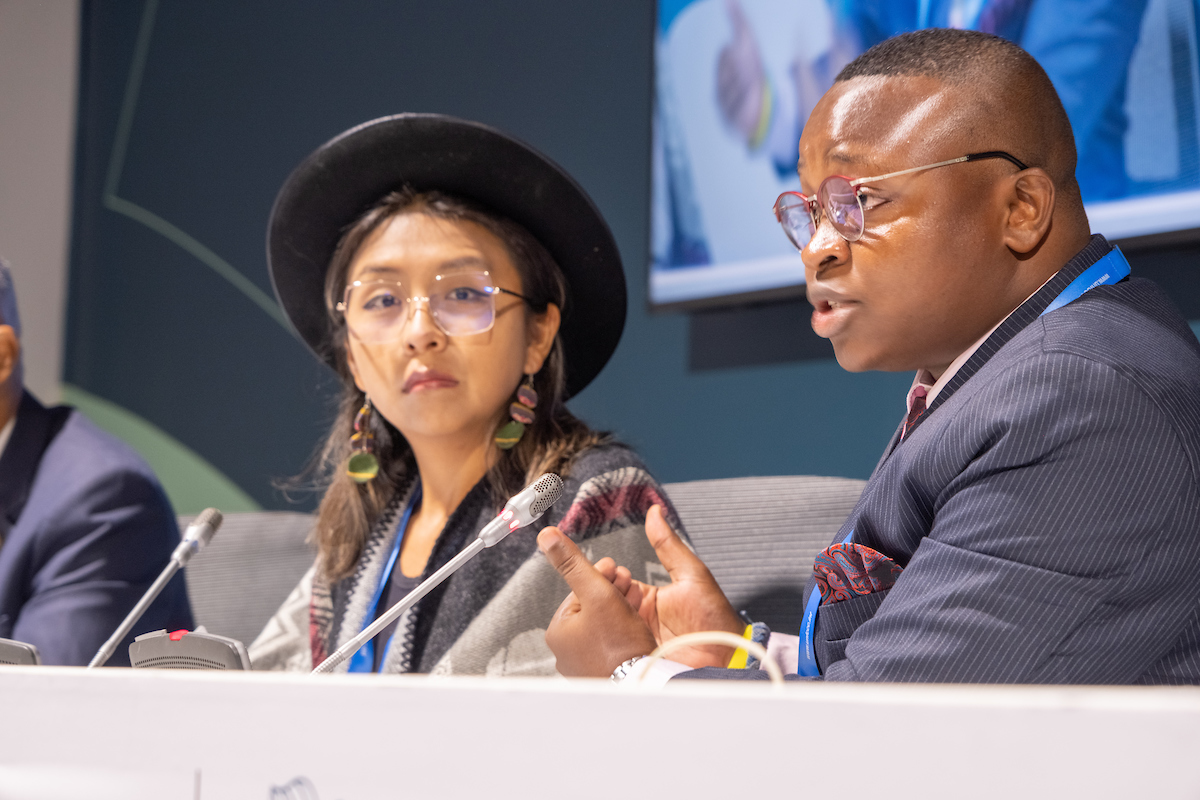
Loss and Damage
A Loss and Damage sub-goal must be established in the NCQG. Additionally, parties should be making new commitments to the L&D Fund, which is largely underfunded, with only Sweden making a contribution at this COP thus far.
Loss and Damage is already having very real impacts on communities around the world, affecting the most vulnerable in many ways, including inflicting both financial and non-economic losses and damages. Patricia Mungcal, Humanitarian Response Manager from the National Council of Churches in the Philippines, addressed the situation in her own country. “Communities from the Philippines have just experienced six back-to-back powerful typhoons in a span of four weeks. This is not normal, and it is an injustice to be plagued by disasters for the climate crisis we, the people, did not create,” she said.
“We are firm that the world’s largest carbon emitters have the primary responsibility for the climate catastrophe in the Philippines and have a climate debt to pay. Just climate finance is not a call for aid. It is a call for accountability for major polluters to fulfill their moral and historical obligations and climate debt to humanity, especially to the most affected and vulnerable,” concluded Mungcal.
Elena Cedillo, Program Executive for Climate Justice with the Lutheran World Federation, said, “Parties should take meaningful steps towards a more just and compassionate world, strengthen efforts to address loss and damage, especially non-economic loss and damage, are not just about money or policies. They are about honoring the lives, identities and beliefs of those most affected.”
Gender
Gender language must be kept in the texts, and wherever possible must be strengthened. At a minimum, language agreed to in previous COPs and in other agreements should be held to, rather than watered down. Gender must have a focus on women and girls, rather than discussing “all women and men, girls and boys” which ignores the differentiated experience and additional vulnerabilities faced by women and girls impacted by climate change.
Gender text cannot be watered down, but should be strengthened. We are in agreement that the Lima GWP is under the convention, and want to see finance commitments in line with the suggested text paragraph 27, in line with the concept of common but differentiated responsibilities.
“COP 29 needs to ensure that there is no regression in terms of ambitious language to ensure gender justice in the texts,” said Sostina Takure, coordinator of the ACT Zimbabwe Forum. “Protection and participation of women and girls must be prioritised in climate action and the provision of means of implementation of the Lima Work Programme and its GAP successor cannot be overemphasized.”
Margareta Koltai, from Act Church of Sweden, continued, “It is important that the decision text of the new gender programme ensures the inclusion of women and girls, indigenous people and local communities, people with disabilities. We are all created in God’s image with equal rights to a healthy environment and sustainable life in dignity.”
It is important that the decision text of the new gender programme ensures the inclusion of women and girls, indigenous people and local communities, people with disabilities. We are all created in God’s image with equal rights to a healthy environment and sustainable life in dignity.Margareta Koltai Act Church of Sweden
Youth
The topic of youth engagement in COP is regularly discussed, but rarely are youth seen in decision-making roles in the negotiations. Youth climate champions outside the halls of COP are on the front lines and driving ambition and concrete action for climate change. This should be reflected within the halls of Baku.
Savanna Sullivan, Program Executive for Youth, Lutheran World Federation, said, “We as young people of faith are calling for bolder action and less empty promises coming from COP29. Our insistence that a better world is possible is not a naive dream, it’s a deep spiritual conviction. As youth, our leadership is essential in this movement. We are the ones on the ground leading projects addressing climate change in our communities around the world, but the world won’t be able to achieve Climate Justice until young people are also fully included in climate negotiations, and our stories and perspectives are taken seriously.”
Climate Mobility
“Climate impacts on human mobility cut across all climate action priorities,” said Andrew Fuys, Senior Technical Advisor, Climate and Migration for Church World Service, and member of ACT’s Migration and Displacement Reference Group. “Including Loss and Damage in the NCGQ would ensure that financing addresses climate-induced displacement. COP29 should also lay the groundwork for dialogue on Human Mobility in future COPs, to ensure this critical cross-cutting issue is addressed systematically and holistically.”
Hope for the COP
Despite the challenges facing COP29 as it enters its second week, there is hope for a positive outcome, one that will provide urgently needed finance for vulnerable communities and developing nations, that will recognize human rights and gender diversity, and that will include youth, Indigenous people and local communities, and other vulnerable groups too often absent.
“At the end of this week people around the world can genuinely feel more hopeful about the future, said Bishop Philip Huggins, from the Australian Anglican Church. “Those who know already about catastrophic climate change can feel loved,cared about. These next days are that big- what a beautiful and focussing responsibility!”

